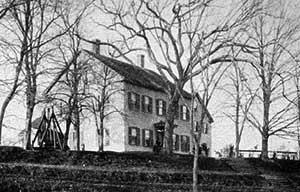About Brook Farm
Brook Farm was founded in West Roxbury, Massachusetts in 1841. Founded George Ripley, and inhabited by such notable figures as Nathaniel Hawthorne and Walt Whitman for varying periods of time, Brook Farm was a community for the transcendentalist movement in New England. Transcendentalists believe in individual rights of liberty and free thought, and were often literately and philosophically inclined.
In 1844, Brook Farm left its transcendentalist values behind and became a member of the American Associationist movement. Led by Albert Brisbane, the American Associationist movement was based of the writings of the French social reformist Charles Fourier, who led the Fourierist movement in France. Fourier described utopian communities, which he referred to as phalanxes, in which a diverse group of people would live and work together in perfect harmony. Albert Brisbane modified Fourier’s writing just slightly when he brought them to America and started the Associationist movement. Brook Farm became an important center for Associationism after its transition in 1844. The national Associationist newspaper, the Harbinger, was edited and published at Brook Farm, and several members of the community spoke about Associationism all across the country.
Brook Farm closed not long after the transition due to a fire in one of the central buildings that it could not recover from, so in the end it was another failed experiment in social utopianism. However, Brook Farm was a thriving center for new utopian ideas during its short existence, and continues to be remembered as one of the most successful attempts at finally reaching a utopian state.
